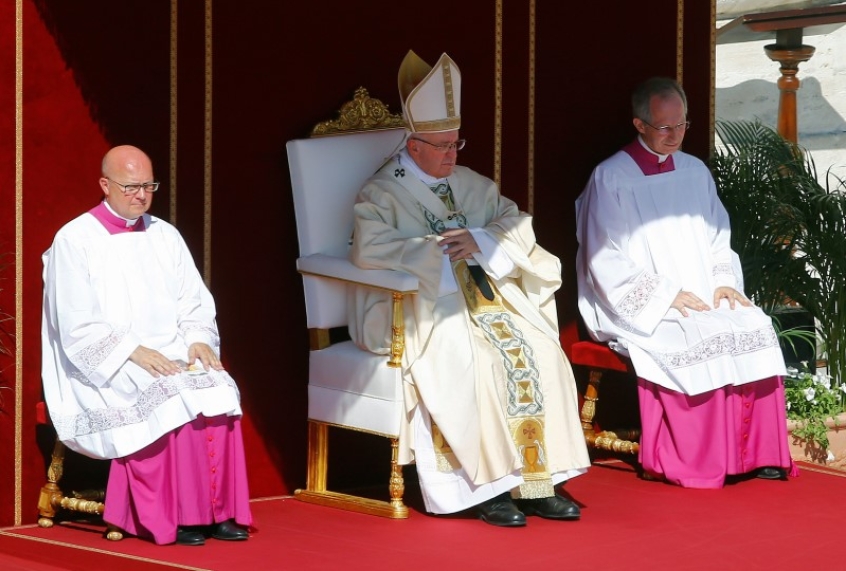The old Christian festival of Halloween has been taken over by merchandisers and pumpkin growers. It's even losing its apostrophe, that little reminder that Hallowe'en is really All Hallows Eve – "hallow" is Old English for 'holy' or 'sanctified' and e'en is a contraction of 'evening'.
Christians spend a lot of time on Halloween, protesting about it or worrying about it. Perhaps we shouldn't be too concerned. It's believed to have pagan roots (though some scholars disagree), so may not be all that Christian in origin, and it has always been a chance for people to let their hair down and have a good time; and there's no particular biblical reason why the forces of darkness should be more active then than during the rest of the year.
What's definitely Christian, though, is the day after. All Hallows Day or All Saints Day was designated by Pope Boniface IV as a day to remember all martyrs in AD 609; he chose May 13, but Gregory IV extended it to include all saints and changed the date to November 1.

Catholics (and later Anglicans) have observed it on that day ever since. Evangelical Protestants have always been wary about saints, in reaction to what they feel is the unwarranted and unbiblical place given them by Roman Catholics. It's arguable that the reaction might have gone too far. They are part of the Church Triumphant, while we on earth are still part of the Church Militant; they haven't ceased to live, just because they happen to have died, and in Catholic eyes it makes perfect sense to ask them to pray for us as we continue to fight the good fight of faith.
The other problem Protestants have with saints is that it seems to rank some Christians more highly than others in a rather unhelpful way. Properly speaking, Catholics don't make saints – they declare that someone is a saint after a long and exhaustive process of investigation. But we are all saints, in a biblical sense; in 1 Corinthians Paul writes "To the church of God that is in Corinth, to those sanctified in Christ Jesus, called to be saints together with all those who in every place call upon the name of our Lord Jesus Christ, both their Lord and ours" (1:2). We are not saints because we are special Christians, we are saints because we are Christians.
So what should an evangelical Protestant do with All Saints Day? There's a great hymn by William Walsham How (1823-1897) that gives us a clue. For all the saints who from their labours rest is a hymn of thanksgiving for those who've gone before us. It speaks of the struggles we face in our lives today as battles against the forces of evil. Death is not defeat; those who've died have entered into the glorious victory of Christ. "We feebly struggle, they in glory shine," says How. And knowing that they are triumphant in glory encourages us: "And when the fight is fierce, the warfare long / Steals on our ear the distant triumph song / And hearts are brave again, and arms are strong / Alleluia!"
So All Saints Day is a time to be thankful for all those Christians who have lived before us, whether they are officially saints or not. Some are the great teachers and prophets from history. Some are those who've taught and inspired us personally. Some are our friends and family. We can thank God for their witness, and for the way they have transmitted the faith down the generations. We can learn from their lives. We can take time to be grateful for what we've received, and to recommit ourselves to follow in their footsteps.
We are bound together in a great fellowship that transcends time and space; as the hymn says, "All are one in thee, for all are thine."













